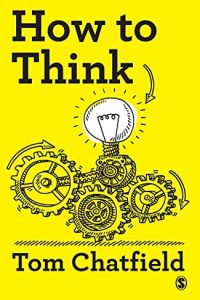Join getAbstract to access the summary!

Join getAbstract to access the summary!
Tom Chatfield
How to Think
Your Essential Guide to Clear, Critical Thought
SAGE Publications, 2021
What's inside?
A tech philosopher’s guide to thinking critically, questioning assumptions and dispelling bias.
Recommendation
You can think better, tech philosopher Tom Chatfield promises. He offers engaging explanations of the principles of critical thinking and, as examples, applies these principles to timely, relevant issues, such as the COVID-19 pandemic. He covers how to question your own assumptions and biases, improve your attention and formulate strong, logical arguments. This commonsense, practical personal development book offers helpful tools for anyone who wants to think and discuss more clearly and rationally.
Summary
About the Author
Tom Chatfield is a British tech philosopher, broadcaster and author. His books include Critical Thinking, How to Thrive in the Digital Age and Fun Inc.

























Comment on this summary